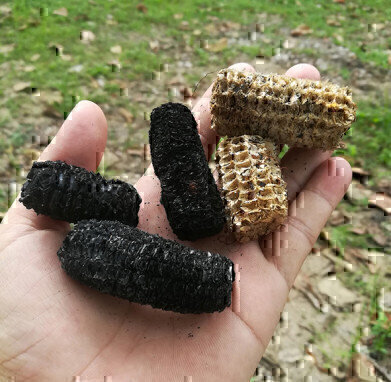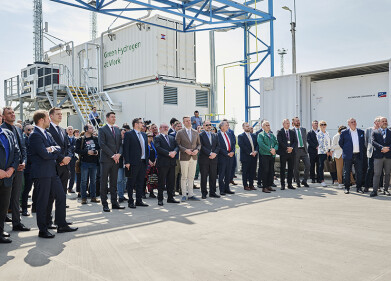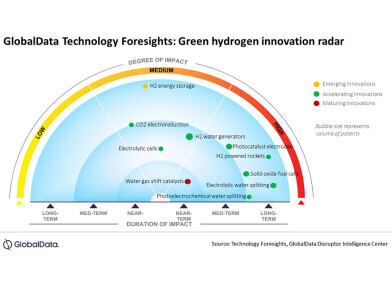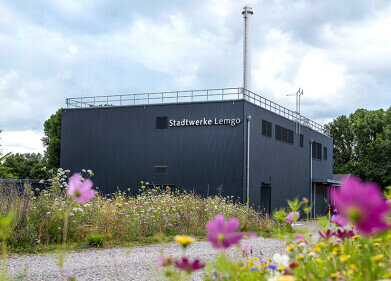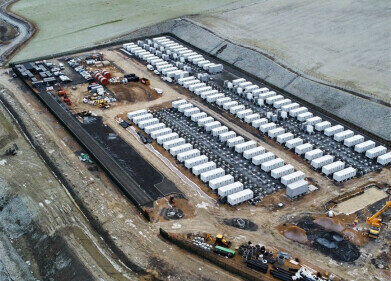Green Energy
Bio coal and wood pellets: carbon-neutral fuels from biomass
Nov 07 2022
Author credit: Stephen B. Harrison, sbh4 consulting
Biomass is recognised to be a carbon-neutral fuel. When burned, it releases CO2, but the biomass captured CO2 from the atmosphere naturally during growth. For fast-growing energy crops such as willow, the cycle between capture and release is less than a decade. For annual harvest wastes, the CO2 cycle is within a 12-month growing and harvest season.
When considering a full lifecycle impact, biomass can also avoid the use of fossil fuels and can reduce methane emissions from forest waste decomposition. So, the use of biomass as a coal replacement can have significant environmental benefits and reduce greenhouse gas emissions.
In the UK, the largest thermal power plant currently in operation is DRAX. It was built as a coal-fired power plant and commenced operations on coal in 1974 with 660 MW of power generation. By 1986, it had expanded to 4 MW of coal-fired generation capacity to become the largest power station in the UK. In 2009 the engineering challenges of converting the coal fired boilers to wood pellets were finally overcome.
The cost of the converting the equipment from coal to wood was estimated at GBP 350 million for the full 4 MW of power generation capacity. The rail waggons and other materials handling equipment also required modifications. Sourcing of the wood pellets required arrangements with new suppliers and covered dry storage on site was implemented.
When making the switch from coal to wood pellets, one of the main differences to consider is the higher bulk density and lower heating value of the wood pellets compared to coal. These differences may limit the total heat generated by the boiler at maximum fuel throughput.
As an alternative to wood pellets, bio coal or bio char can be considered as a replacement for fossil coal. Bio coal is derived from larger pieces of lump wood or pelletised wood. Biochar is made from post-harvest crop residues. Biochar can be briquetted for ease of handling, if required.
The Boardman coal fired power plant, a 550 MW power generation facility in Oregon conducted a test using 100% bio coal in 2016. During the 16-hour test burn, 5,000 tonnes of torrefied wood pellets, or bio coal, were successfully used. The Boardman power plant has subsequently been closed, but the results of the test validate the simplicity of switching from fossil coal to bio coal.
Bio coal or briquetted biochar have properties like coal, whereas raw wood pellets are quite different in their nature. Therefore, the conversion of a power plant from coal to bio coal is much simpler than from coal to wood pellets.
A further benefit of using bio coal versus biomass is that it simplifies the logistics because bio coal is an energy-rich fuel with heating values up to 31 MJ/kg for pine pellet biochar. On the other hand, raw biomass has a very high moisture content, resulting in reduced heating values for in the range of 12.5 MJ/kg at 30% moisture content and 17 MJ/kg at 10% moisture content.
The low energy density of raw biomass means that distribution is wasteful because much of the volume being transported is water locked into the biomass. Another benefit of using bio coal is the heat derived from biochar combustion is significantly more than the heat derived from raw biomass due to the lack of moisture in the bio coal. Bio coal burns in a similar way to high quality coal.
The negative aspect of bio coal use is that the biomass must be converted to bio coal in a purpose-built torrefaction or pyrolysis plant which would ideally be located close to the source of the biomass. Some of the biomass is consumed at the bio coal production facility to provide the heat energy required for the torrefaction or pyrolysis.
In the wider business case consideration between wood pellets and bio coal, the capital investment in the bio coal production plant and the energy losses required for its operation are traded against the reduction in supply chain logistics costs. The capital cost avoidance of replacing the coal-fired burners in existing heat and power facilities is also an important factor in favour of the bio coal business case.
Events
Apr 24 2024 Sao Paulo, Brasil
May 05 2024 Seville, Spain
May 13 2024 Munich, Germany
May 23 2024 Beijing, China
May 23 2024 Beijing, China
